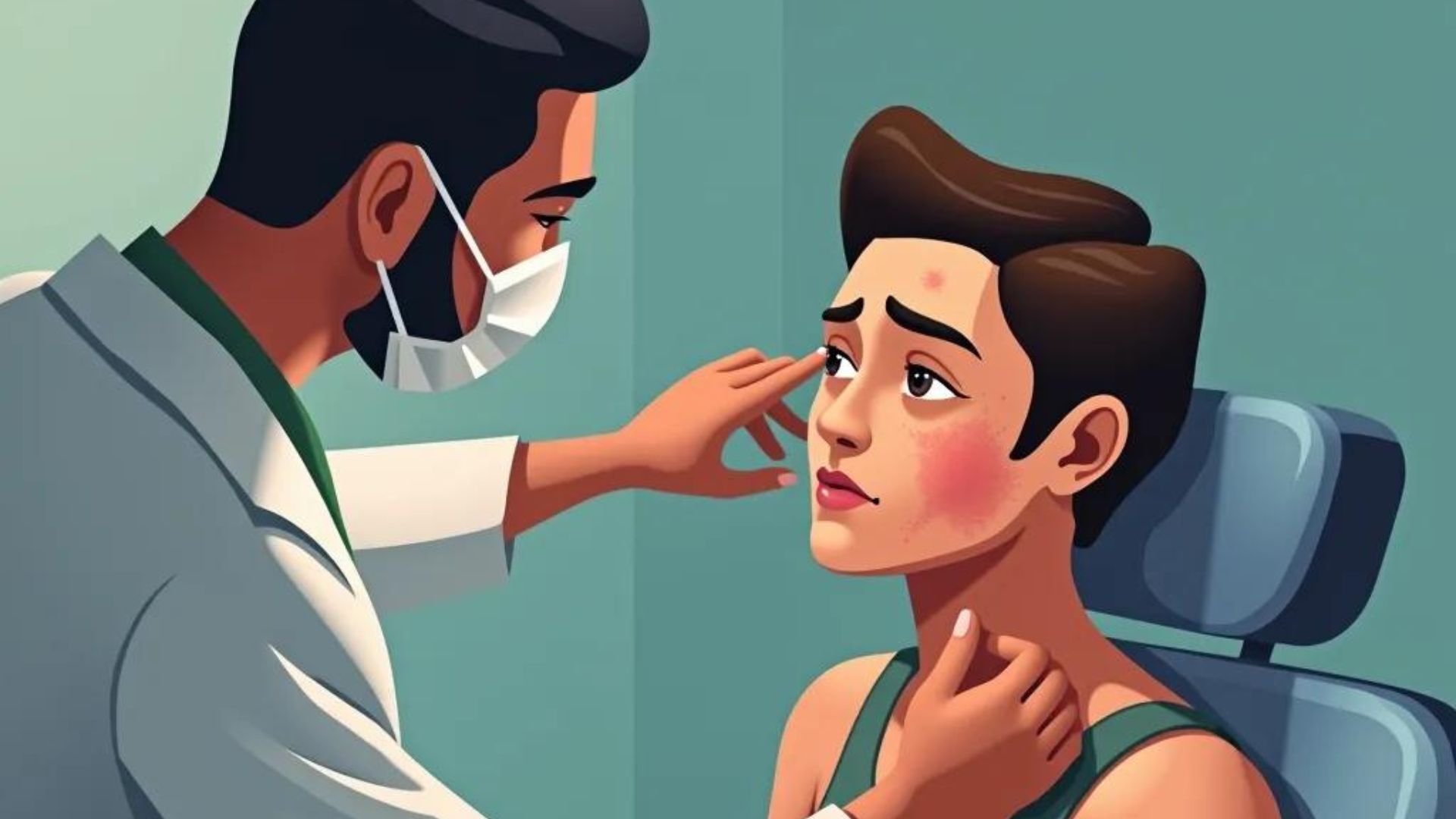Key Takeaways: Seborrheic Dermatitis Treatment
| Topic | Key Takeaways |
|---|---|
| Understanding Seborrheic Dermatitis | * Caused by an overgrowth of Malassezia fungus. * Symptoms include flaking, redness, and itching. |
| Treatment Options | * OTC medications: shampoos and topical creams. * Prescription medications: corticosteroids and antifungals. * Lifestyle changes: regular hair washing, gentle hair care, stress management, and diet. |
| When to See a Doctor | * Severe seborrheic dermatitis. * Lack of response to OTC treatments. * Accompanying symptoms like hair loss. |
| Overall | * While there’s no cure, symptoms can be managed effectively. * Consult a dermatologist for personalized treatment. |
Table of Contents
Introduction
Seborrheic dermatitis, often referred to as dandruff, is a common skin condition that affects the scalp, face, and other areas of the body. While it can be unsightly and sometimes itchy, it’s usually not a serious health concern. In India, where humidity and pollution can exacerbate skin issues, understanding and managing seborrheic dermatitis is particularly important.
Understanding Seborrheic Dermatitis
- Causes: The exact cause is unknown, but it’s believed to be related to an overgrowth of a naturally occurring yeast-like fungus called Malassezia.
- Symptoms: The most common symptoms include:
- Flaky, white or yellowish scales on the scalp, eyebrows, and face
- Redness and itching
- Greasy skin
Treatment Options in India
While there’s no cure for seborrheic dermatitis, various treatments can help manage symptoms and improve overall skin health. Here are some common options available in India:
Over-the-Counter (OTC) Medications
- Shampoos: Medicated shampoos containing ingredients like ketoconazole, zinc pyrithione, selenium sulfide, or salicylic acid can help reduce flaking and itching.
- Topical creams or lotions: These can be used to treat seborrheic dermatitis on areas other than the scalp, such as the face or chest.
Prescription Medications
- Corticosteroid creams or ointments: These can be prescribed to help reduce inflammation and itching.
- Antifungal medications: If the condition is severe or doesn’t respond to OTC treatments, a doctor may prescribe antifungal medications to target the underlying yeast.
Lifestyle Changes
- Regular hair washing: Washing your hair regularly with a suitable shampoo can help control flaking.
- Gentle hair care: Avoid harsh hair products and excessive brushing or styling.
- Stress management: Stress can exacerbate skin conditions, so practicing stress-reduction techniques like yoga, meditation, or deep breathing can be beneficial.
- Diet: While there’s no definitive link between diet and seborrheic dermatitis, some people find that avoiding certain foods, such as dairy or spicy foods, may help manage symptoms.
When to See a Doctor
If your seborrheic dermatitis is severe, doesn’t respond to OTC treatments, or is accompanied by other symptoms like hair loss, it’s important to consult a dermatologist. A doctor can provide a proper diagnosis and recommend the most appropriate treatment plan.
Remember: While seborrheic dermatitis can be frustrating, it’s often manageable with the right approach. By understanding the condition and following the recommendations of a healthcare professional, you can effectively control symptoms and improve your quality of life.
Frequently Asked Questions
| Question | Answer |
|---|---|
| Is seborrheic dermatitis contagious? | No, seborrheic dermatitis is not contagious. It is caused by an overgrowth of a naturally occurring fungus. |
| Can seborrheic dermatitis lead to hair loss? | In rare cases, severe seborrheic dermatitis can contribute to hair loss. However, this is usually temporary. |
| Is there a cure for seborrheic dermatitis? | There is no permanent cure for seborrheic dermatitis. However, the symptoms can be managed effectively with appropriate treatment. |
| Can diet affect seborrheic dermatitis? | While there is no definitive link between diet and seborrheic dermatitis, some people find that avoiding certain foods, such as dairy or spicy foods, may help manage symptoms. |
| Is seborrheic dermatitis a serious condition? | Seborrheic dermatitis is generally not a serious condition. However, it can be uncomfortable and affect your quality of life. |
| Can stress worsen seborrheic dermatitis? | Yes, stress can exacerbate seborrheic dermatitis. Practicing stress-reduction techniques can help manage symptoms. |
| Can I use over-the-counter products to treat seborrheic dermatitis? | Yes, many over-the-counter products, such as medicated shampoos and topical creams, can be effective in treating seborrheic dermatitis. |
| When should I see a dermatologist? | If your seborrheic dermatitis is severe, doesn’t respond to over-the-counter treatments, or is accompanied by other symptoms, it’s important to consult a dermatologist. |
| Can seborrheic dermatitis affect areas other than the scalp? | Yes, seborrheic dermatitis can also affect other areas of the body, such as the face, chest, and ears. |
| Can seborrheic dermatitis be prevented? | There is no guaranteed way to prevent seborrheic dermatitis. However, practicing good hygiene, managing stress, and using appropriate hair care products can help reduce the risk. |
